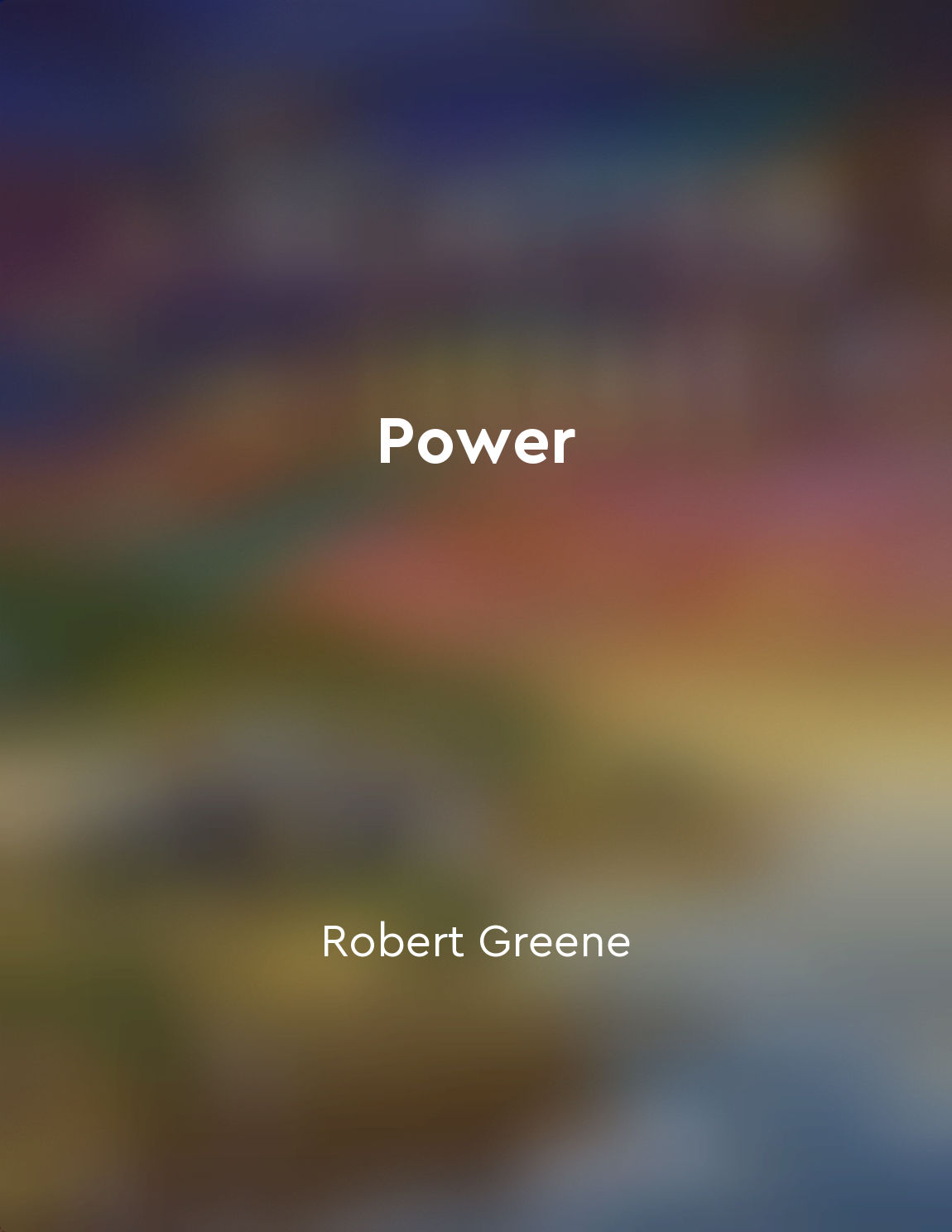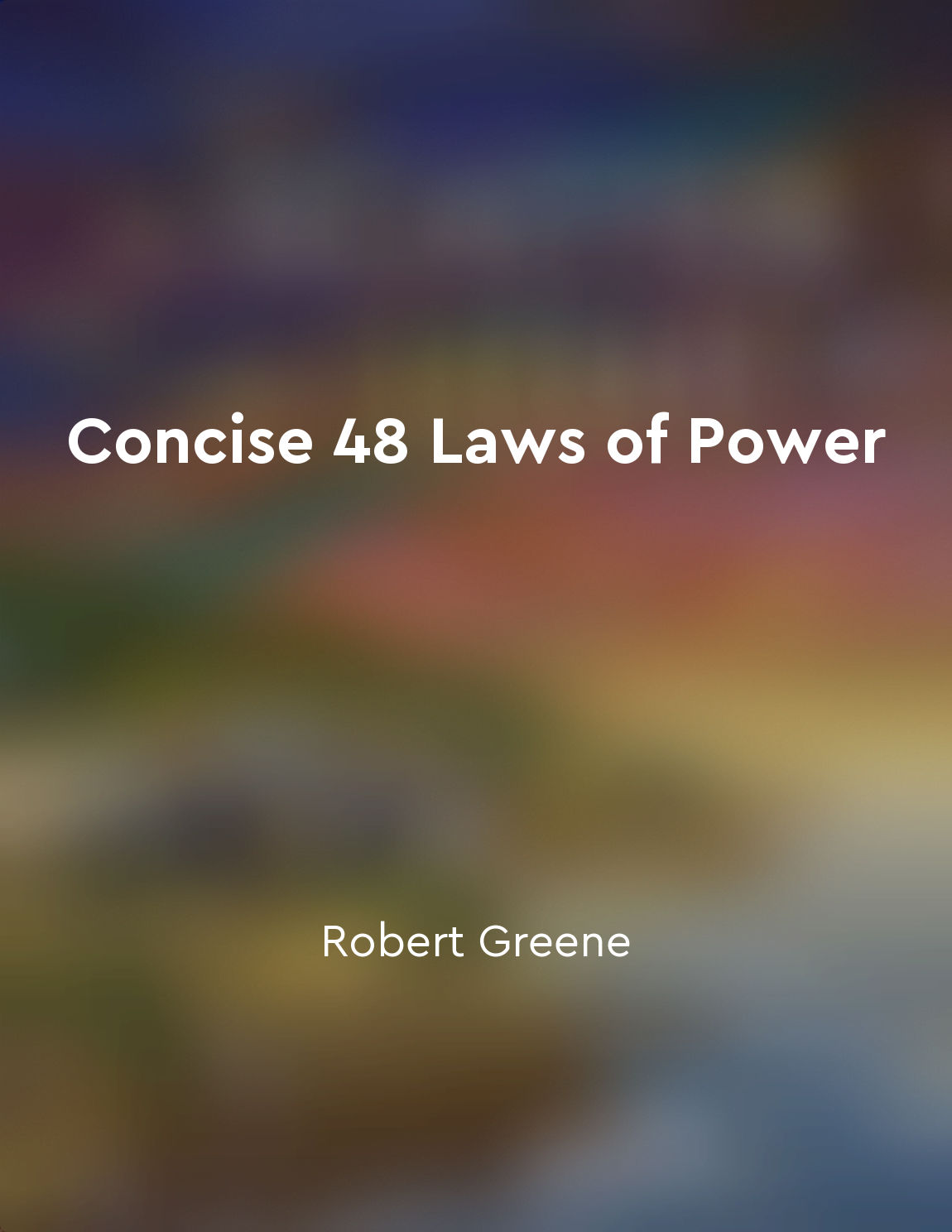Power can be a force for compassion and kindness from "summary" of The Power Paradox by Dacher Keltner
The concept that power can be a force for compassion and kindness challenges our common assumptions about power dynamics. Instead of seeing power as a corrupting force that leads to selfishness and aggression, new research suggests that power can actually enhance our ability to empathize and connect with others. This idea may seem counterintuitive at first, but it is grounded in a growing body of evidence that highlights the positive impact of power on our social behavior. When we think of powerful individuals, we often imagine them as being cold and unfeeling, focused solely on their own interests and goals. However, studies have shown that power can actually increase our capacity for empathy and compassion. As we gain power, our brains become more attuned to the emotions and needs of others, enabling us to better understand and respond to their experiences. This heightened sensitivity to the feelings of those around us can drive us to act with greater kindness and generosity, using our influence to benefit others rather than just ourselves. One of the key mechanisms through which power promotes compassion is by shaping our perceptions of social norms and expectations. When we occupy positions of authority, we are more likely to view kindness and cooperation as desirable traits, both for ourselves and for those around us. This shift in mindset can lead us to prioritize the well-being of others, using our power to promote positive social outcomes and foster a sense of community and connection. In this way, power can serve as a catalyst for greater empathy and altruism, encouraging us to act in ways that benefit not only ourselves but also those we interact with. Furthermore, power can enhance our ability to engage in perspective-taking, allowing us to see the world through the eyes of others and understand their thoughts and feelings more deeply. This capacity for empathy can enable us to bridge the gap between ourselves and those we wield power over, fostering a sense of mutual understanding and respect. By cultivating a sense of shared humanity and interconnectedness, power can become a force for compassion and kindness, strengthening our bonds with others and enriching our social relationships.- The idea that power can be a force for compassion and kindness challenges traditional notions of how power influences our behavior. By highlighting the positive impact of power on our ability to empathize, connect, and cooperate with others, this concept offers a new perspective on the potential benefits of wielding influence and authority. Rather than seeing power as a corrupting force that leads to selfishness and aggression, we can recognize its capacity to promote empathy, generosity, and cooperation, ultimately
Similar Posts
Know who you’re dealing with, don’t offend the wrong person
Understanding the true nature of the people you come in contact with is crucial in navigating the complex web of human interact...

Recognize the power struggles in society
The dynamics of power are ever-present in society, shaping relationships and interactions at every level. To navigate this comp...
Transparency is crucial in power dynamics
Transparency is a fundamental element when analyzing power dynamics. Within the intricate web of relationships that define powe...
Power can be strengthened through continuous selfimprovement and learning
In the ever-evolving landscape of power dynamics, one thing remains constant - the importance of continuous self-improvement an...
Power can enhance creativity
Power, contrary to what many believe, can actually enhance creativity. When individuals are in positions of power, they often f...
Power can be a force for compassion and kindness
The concept that power can be a force for compassion and kindness challenges our common assumptions about power dynamics. Inste...
Power can blind individuals to the needs of others
The concept that power can blind individuals to the needs of others is a central theme in understanding the dynamics of power. ...

Create compelling spectacles to captivate and control your audience
To captivate and control your audience, you must create compelling spectacles that draw them in and leave them in awe. People a...

